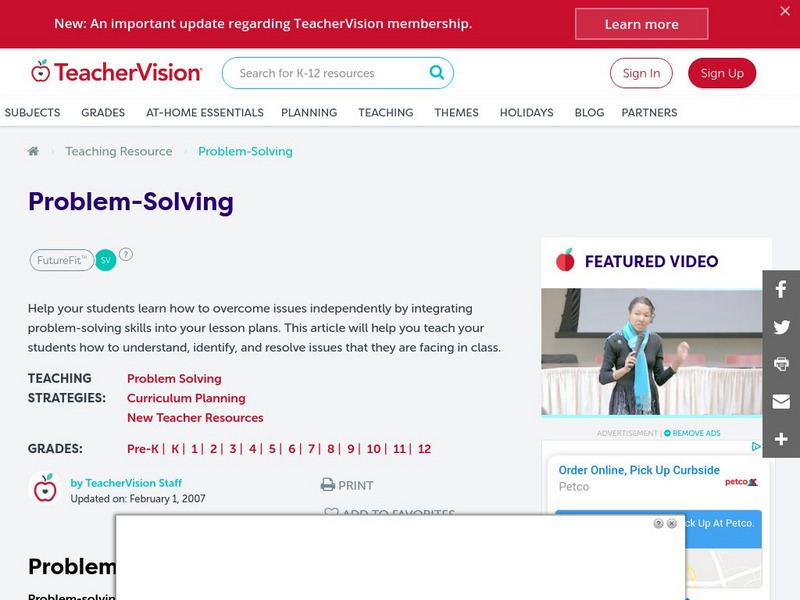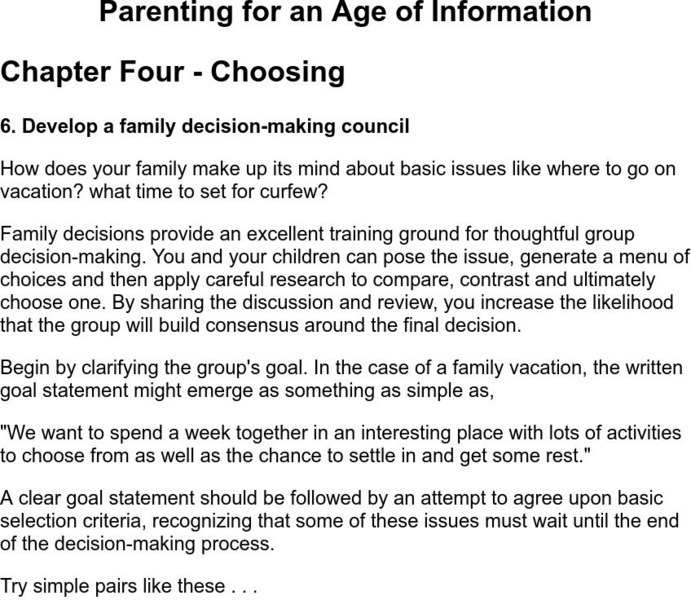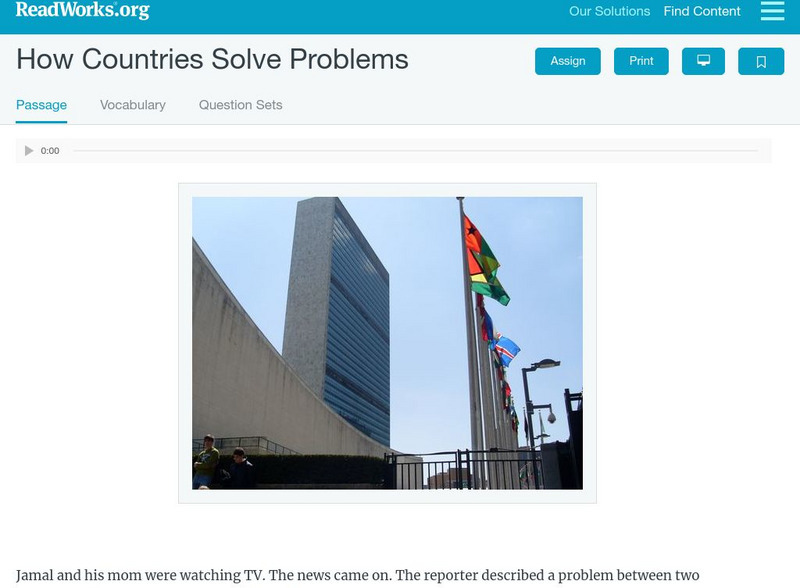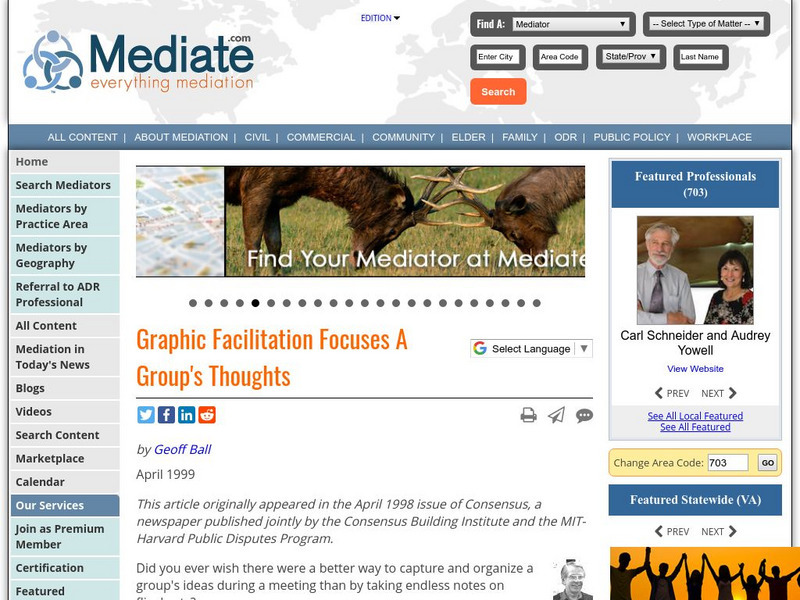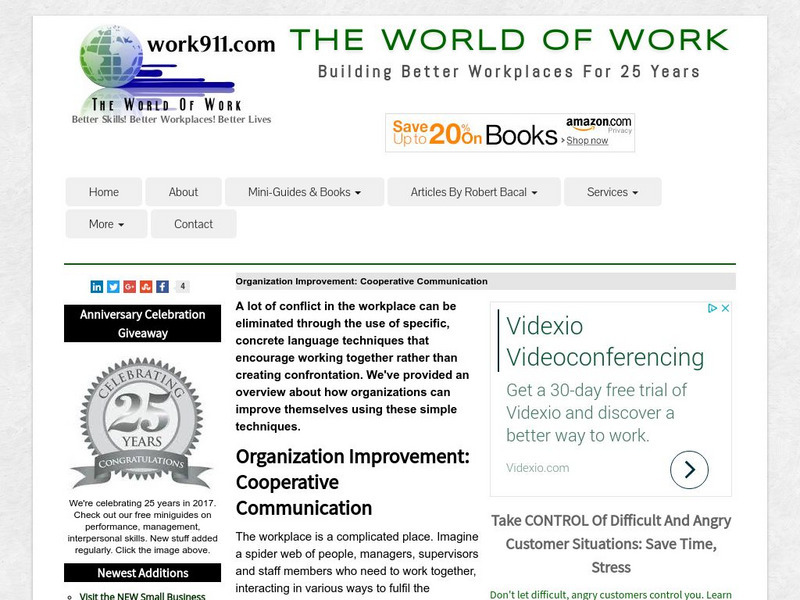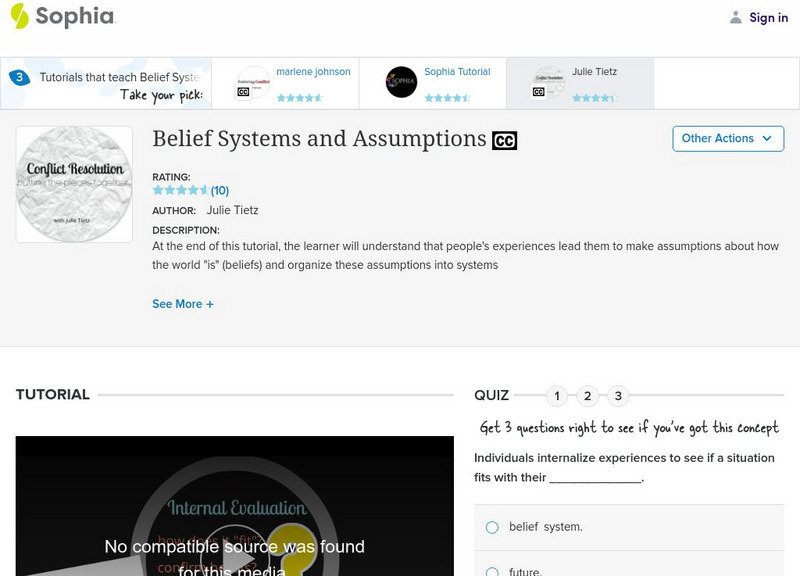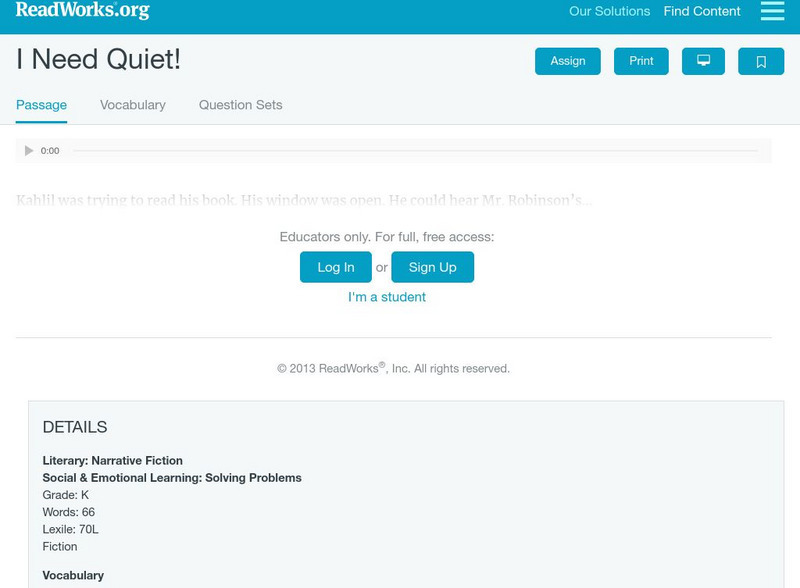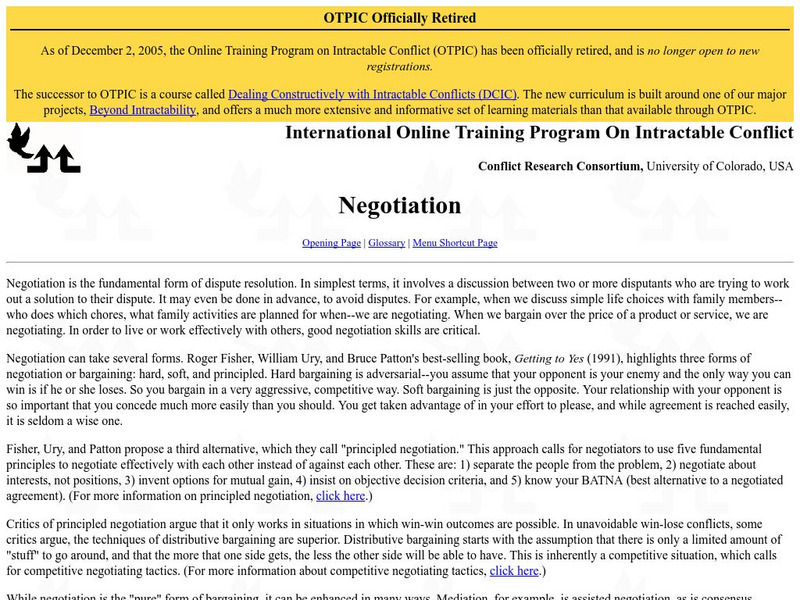PBS
Pbs Learning Media: Arthur: Making Up
Explore ways to resolve conflicts between friends. Use role-play and discussion to help children develop conflict resolution skills.
PBS
Pbs Learning Media: Arthur: Empathy: So Funny I Forgot to Laugh
Explore the topic of empathy in this interactive comic. Can Arthur find a way to apologize for bullying Sue Ellen and save their friendship?
TeachEngineering
Teach Engineering: It Takes Two to Tangle
Students explore the theme of conflict in literature. They learn the difference between internal and external conflict and various types of conflicts, including self against self, self against other, and self against nature or machine....
Other
Cooperative Communcation Skills: Emergency Kit [Pdf]
This site is provided for by Cooperative Communication Skills. Seven suggestions for resolving or refusing conflict before it gets out of hand. SL.9-10.1c Active Participation. CCSS.ELA-Literacy.CCRA.SL.1, SL.11-12.1c Questions/Part
Edutopia
Edutopia: Common Ground: Teaching Kids the Benefits of Working Together
Article discusses how cooperative learning helps create the essential skill of working (and compromising) within a group.
ReadWriteThink
Read Write Think: Using Picture Books to Teach Plot Development and Confict Res.
Students read picture books to explore the concepts of plot development and conflict resolution. They first learn about the connections between reading and writing, and then revise their own writing. CCSS.ELA-Literacy.CCRA.R.4
Other
Teacher Vision: Problem Solving
Help your students learn how to overcome issues independently by integrating problem-solving skills into your lesson plans. This article will help you teach your students how to understand, identify, and resolve issues that they are...
Live Wire Media
Good Character: Teaching Guides for Middle School
Although these teaching guides are designed to be used with a video series called "Big Changes, Big Choices," most of the material here can be used without the videos. The topics covered in this series include both life skills and...
FNO Press
Fno.org: Develop a Family Decision Making Council
Brief article introduces PMI as a method of decision making. While the thrust of the article deals with building skills for the information age, the PMI model is an interesting way to go about family decisions.
Read Works
Read Works: Countries Solve Problems
[Free Registration/Login Required] Intended to support early elementary students' reading comprehension, this short story helps students understand how countries solve problems. Questions that assess multiple reading skills are provided.
Other
Mediate: Graphic Facilitation Focuses a Group's Thoughts
This article discusses what graphic facilitation is and how it can focus a group's thoughts and understanding. An example is provided showing how it resolved a conflict between two groups.
PBS
Pbs Learning Media: Daniel Tiger's Neighborhood: Life's Little Lessons: Friendship
Just like Daniel Tiger and Miss Elaina, the children in your classroom are still learning how to be a friend, how to compromise, and how to work together to solve a problem. By seeing how Daniel Tiger and Miss Elaina work out their...
Other
Heart Mind Online: 5 Step Problem Solving for Young Children
Even young children can be taught to solve their problems peacefully with this 5 step process. A lesson plan is included that allows students to practice this skill.
Other
In Time: Tenets of Democracy: Critical Thinking and Decision Making
This critical thinking exercise and checklist is designed for teachers and students. A lesson plan can be developed here that illustrates decision-making skills and a teacher can use examples of common problems that get in the way when...
American Forum for Global Education
American Forum for Global Education: Planning a Park
At this site from the American Forum for Global Education, students learn how to plan a park through this step-by-step, hands-on activity that teaches elementary economic lessons. Not only will students plan, but they will learn how to...
Other
Work 911: Cooperative Communication
This site defines "Cooperative Communication" and provides examples and information as to how to apply it. Although the article is geared toward the workplace, it applies to all forms of communication, especially when negotiating....
Quizlet
Quizlet: R.3 Analyze How and Why Individuals, Events, or Ideas, Develop/interact
Please align to CCSS.ELA-Literacy.CCRA.R.3 Analyze how and why individuals, events, and ideas develop and interact over the course of a text.
Other
Raising Children Network: Family Rules
Tips for developing family rules. Household rules let everyone in the family know how to behave. They help family members achieve a balance between getting what they want and respecting the needs of others. They can also help children...
Sophia Learning
Sophia: Belief Systems and Assumptions: Lesson 2
At the end of this tutorial, the learner will understand that people's experiences lead them to make assumptions about how the world "is" (beliefs) and organize these assumptions into systems. It is 2 of 3 in the series titled "Belief...
Curated OER
Kids Health: Dealing With My Anger
Often times our first reaction when we're angry is to become physically aggressive. This site provides strategies for channeling one's anger into productive venues.
PBS
Pbs Learning Media: Arthur: Teasing Is Tough
Get your children to talk about how it feels to be teased. Work together to create coping strategies.
Alabama Learning Exchange
Alex: Larger Than Life
Students will write a tall tale narrative including larger than life characters with unusual skills or abilities using exaggeration, humor, surprise endings, and story elements (setting, characters, conflict, resolution).
Read Works
Read Works: I Need Quiet!
[Free Registration/Login Required] A literary text about a boy named Kahlil who figured out a way to eliminate noisy distractions so he could read. A question sheet is available to help students build skills in reading comprehension.
University of Colorado
University of Colorado: Negotiation
Contains information regarding the various types of negotiation and negotiating processes, including links for more in-depth information for certain types.






